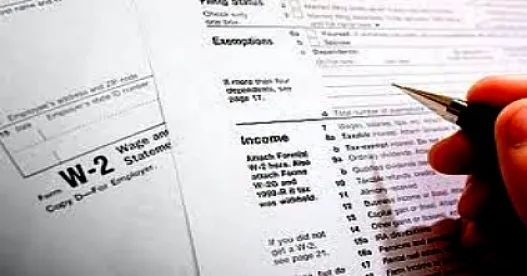The Social Security Administration (SSA) has once again begun notifying employers (and third-party payroll companies) who submitted Form W-2s containing name and Social Security Number (SSN) combinations that do not match the agency’s records, with what are known as “No-Match Letters.” Such discrepancies can arise from commonplace events such as marital name changes, but can also indicate that an individual is using false identification. Accordingly, while not conclusive evidence that an employee is not authorized to work in the United States, No-Match Letters put employers on notice of a possible issue. The SSA began sending these letters in 1993 and ceased the practice in 2012 after a failed attempt to introduce a regulatory “safe harbor” for employers that received these letters and took appropriate measures in response to verify the identity and work authorization of the employees at issue.
Now, with the current administration having pledged to increase workplace immigration enforcement, it is important for an employer to contact an attorney upon receipt of a No-Match Letter. Information regarding No-Match Letters is not automatically shared between the SSA and the agencies that enforce immigration laws. The Court of Appeals for the District of Columbia has ruled that the SSA may not disclose information concerning the names of employers receiving the most no-match employees because the information was derived from a W-2 form, and was therefore subject to confidentiality under tax laws. Judicial Watch v. SSA, 701 F.3d 379 (D.C. Cir. 2012). However, the Department of Homeland Security (DHS) can request information from the SSA for the purposes of identifying and locating aliens in the United States, and enforcing laws. 5 U.S.C. § 552a(b)(7). Accordingly, employers ignore such letters at their peril.
Employers should note that receipt of a No-Match Letter or other no-match notice does not, standing alone, constitute “constructive knowledge” that the affected employee is not work-authorized. Only DHS is legally authorized to determine an individual’s authorization to work. Moreover, employers must be careful to respond appropriately to a No-Match Letter. The U.S. Department of Justice (DOJ) has issued guidance regarding employer action in response to “anonymous tips” reminding employers that requesting excessive or unnecessary documentation from employees can violate the anti-discrimination provisions of the Immigration and Nationality Act. Those provisions prohibit, among other things, unfair documentary practices on the basis of citizenship, immigration status, or national origin relating to the employment eligibility verification (Form 1-9) process. Furthermore, the 9th Circuit Court of Appeals has ruled that receipt of an SSA No-Match Letter about a worker is not, in and of itself, “just cause” for firing the worker when the worker is covered by a collective bargaining agreement. Aramark Facility Services v. SEIU, Local 1877, No. 06-56662 (9th Cir. June 16, 2008). Accordingly, a rash or improper reaction to a No-Match Letter can be as bad as inaction.
Once the proper response to a No-Match Letter has been determined, employers should give affected employees a reasonable period of time to provide required information. DOJ guidance addresses this issue. It states:
There are no Federal statutes or regulations in effect that define a “reasonable period of time” in connection with the resolution of a no-match notice. As a practical matter, a “reasonable period of time” depends on the totality of the circumstances. Of note, in the E-Verify context SSA has the ability to put a tentative non-confirmation into continuance for up to 120 days. This recognizes that it can sometimes take that long to resolve a discrepancy in SSA’s database.
The SSA also has guidance for employers regarding No-Match Letters on its website.



 />i
/>i

